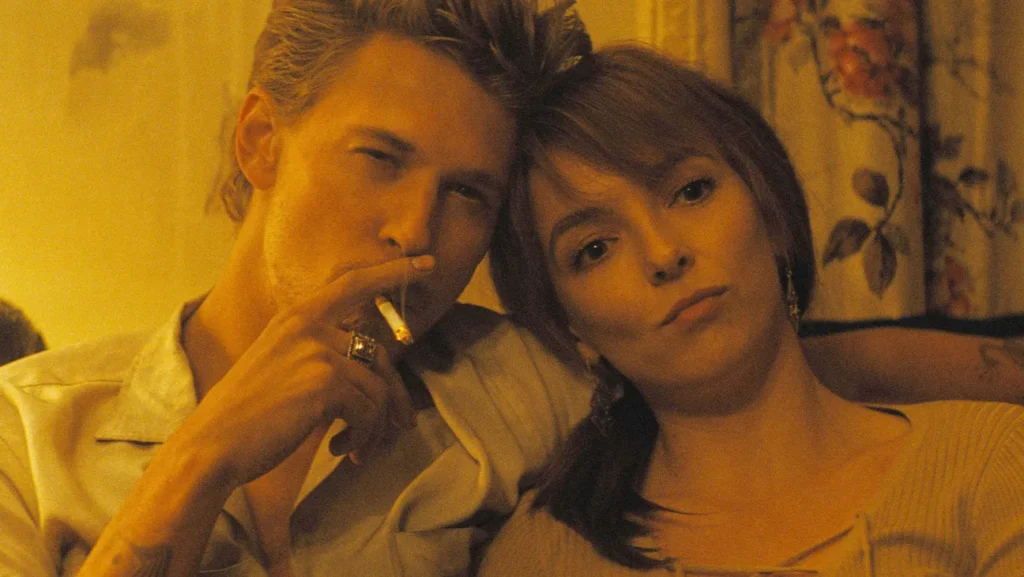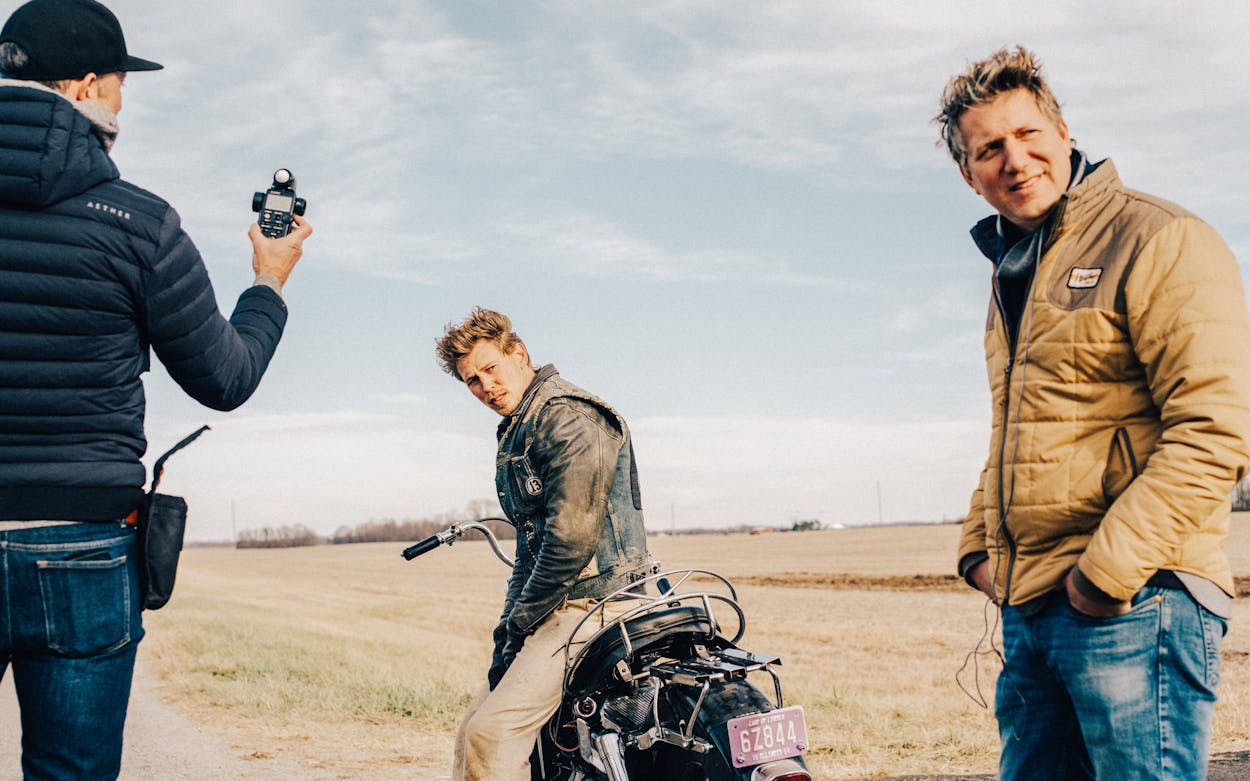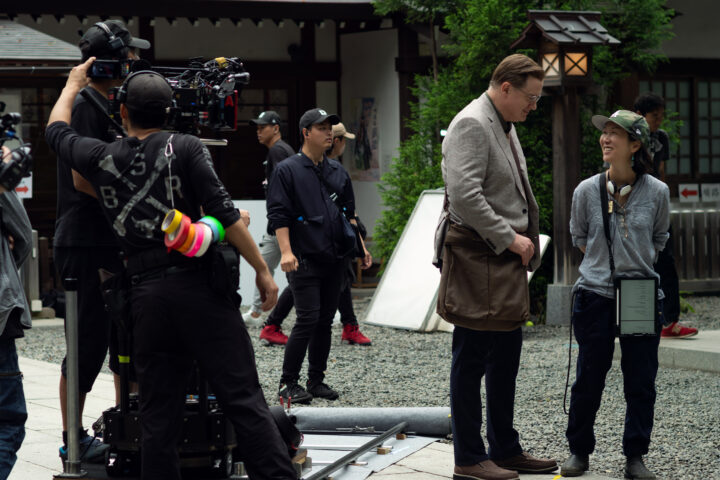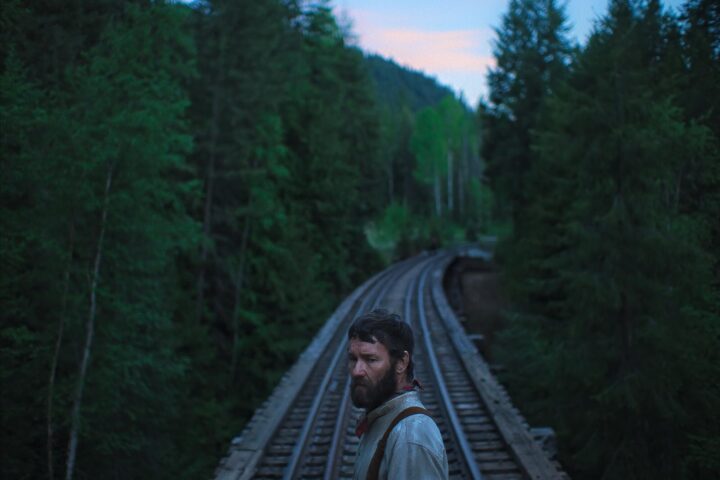Jeff Nichols’ new film The Bikeriders charts the birth and rise of a fictional 1960s-era Chicago motorcycle club named the Vandals, as seen through the eyes of three compelling actors: Tom Hardy as the gang’s founder and leader, Austin Butler as his young protégé and Jodie Comer as Butler’s increasingly frustrated wife. The film prioritizes style above all, reflecting Nichols’ long-held fascination with photographer-author Danny Lyon’s 1968 book of the same name, which documented the exploits of the real-life Outlaws and inspired Nichols’ rough-and-tumble picture.
Nichols, the acclaimed Arkansas-born filmmaker, has directed notable films such as the quietly menacing Take Shelter, the adolescent coming-of-age drama Mud and the historical Loving, which charted the landmark 1967 Supreme Court ruling in Loving v. Virginia that legalized interracial marriage. In The Bikeriders, Nichols explores themes of subculture and masculinity, disrupted by crime, love and marriage. I recently had the opportunity to the consider film’s themes and its trio of stars with Nichols in a brief chat.
It was more than twenty years ago when you first saw Danny Lyon’s iconic 1968 photos of the Outlaws and became interested in the subject matter which would eventually become The Bikeriders. You’ve mentioned you were thinking about making this film for many years. What struck you, or stayed with you, about the images?
Jeff Nichols: Well, if you look at the photos, you know the people- it is just fascinating looking at them. But it’s really when you combine the photos with the book’s interviews that you get a full portrait of a subculture and the psychology behind it. So you look at the photographs and you think ‘Well, this is compelling and interesting.’ The style and the look of everybody is certainly something that I gravitated toward, but when combined with the interviews you really start to understand how these people operated, why they chose the life they did. To me that is what’s really interesting—the psychology behind the subculture.
What did you learn about why people gravitate to subcultures? Many of us do; you and I may as well.
JN: Absolutely we do. I think it’s human nature. When you’re trying to make a film you to find some universal truth. Something that is a pattern that you see happening again and again in society is that a lot of people feel like they don’t fit or belong so they move to the outside, and the fringes are where really interesting things happen. That’s where the most interesting art and fashion and style comes from. The truth is, I think people are looking for an identity and because we’re social creatures, we find that identity in a group. The more unique that group is, the more unique is your identity. That can be a really powerful thing—a motivating thing or a very, very dangerous thing. The Bikeriders is a little bit of both.
Jodie Comer is a genius-level actor. I saw her in Prima Facie on Broadway, and…
JN: Oh you got to see it!
Yes. Simply one of the best performances from one of the best of actresses working today. She is near the top. She must have been terrific to work with on this film.
JN: Yeah, Jodie Comer is the best. I really can’t be too hyperbolic about the way I feel about her and her performance. I didn’t know her work very well when we first met. Everyone was telling me, ‘You have to get Jodie Comer! You have to get Jodie Comer!’ And fortunately, she really saw something in the character that she identified with and with which I agreed. But it wasn’t until after I saw Prima Facie on the West End in London that I realized I was the luckiest director in the world, and that she can do anything. She can absolutely do anything. In The Bikeriders, she plays a working class Chicagoan, and we had actual audio examples of the voice from the (real life) woman. Jodie absorbed those in the truest sense. She broke down every line—and she’s got a ton of them in this movie—phonetically, and she just committed herself to an honest portrayal.

Let’s talk about Austin Butler, whom you cast in The Bikeriders before Elvis had hit the zeitgest. You must have seen something in him. What does he bring to the film?
JN: You hear the term charisma. Movie stars are supposed to have it. He has it, and then some. Honestly, at this point in my career I’ve been around a lot of famous people. And many celebrities are the real thing. But there’s something else beyond that. And Austin has it. When he walks into a room the temperature changes. People are drawn to him. He’s an incredibly nice, sweet guy, but it goes beyond that. He’s also incredibly handsome guy. It goes beyond that as well. He just has something that makes you want to be around him; to be with him. And that’s integral to the character that he portrays in this film.
What about the Outlaws? Have any of them seen the film?
JN: Not that I’m aware of. I haven’t spoken to any of them. Hopefully they will like it. We’ve been pretty outspoken about the fact that this is a fictionalized world. Partly out of deference to them we didn’t use their patch or name. And quite frankly, I didn’t tell their story. I used the book and the photographs and the interviews as kind of a jumping off point, and really fictionalized everything else. I didn’t want to be beholden to their real history or their story. The hope is that the film kind of shows this moment in time; this particular moment of bike culture.
Do you ride a bike?
JN: I do.
What’s the feeling when you’re riding that would attract someone to it as a way of life?
JN: I certainly don’t ride at the level that these guys ride. As a lifestyle there’s a freedom to it. That’s the truth. I think a lot of times we’re in our cars, looking at our cell phones, listening to music; listening to all these things. There’s just something about being on a bike that’s incredibly freeing. And it is intoxicating. It’s also extraordinarily masculine.
This interview has been edited for length and clarity.



